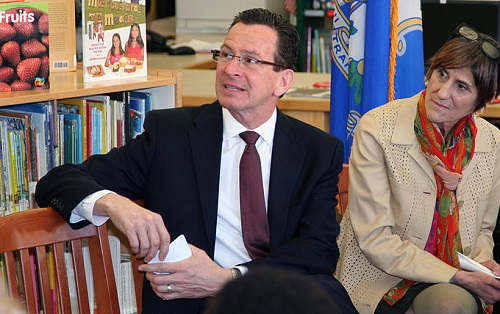
March 13, 2015;Connecticut Mirror
We have been hearing generally positive feedback about the administration of Connecticut governor Dannel Malloy, including his tough stance on preserving safety net hospital functions in the proposed acquisition of several hospitals by the Tenet hospital conglomerate and his funding of housing and community development in the state after years of relative state appropriations neglect. That’s why this op-ed by Patrick Johnson, the interim executive director of the Connecticut Association of Nonprofits, caught our eye.
The headline on Johnson’s op-ed declares, “Connecticut nonprofits are in an abusive relationship…with the state.” That’s strong language on behalf of the nonprofit sector, which is a diverse lot of organizations engaged in a variety of policy and program relationships with the state. Johnson’s argument is that Malloy’s proposed budget continues the “chronic underfunding and additional reductions for essential human services” that have characterized the state’s treatment of human service providers. Johnson points out that the average annual increase in state contracts for nonprofits over the past decade has been less than one percent, much below the rate of inflation.
“The state seems to be in denial that inflation exists for us and the people we serve,” Johnson writes. “Denying the reality of inflation is like saying gravity does not exist and the nonprofit agencies and the vulnerable people we serve should be able to just float above the problems we confront.”
Sign up for our free newsletters
Subscribe to NPQ's newsletters to have our top stories delivered directly to your inbox.
By signing up, you agree to our privacy policy and terms of use, and to receive messages from NPQ and our partners.
Johnson’s language becomes even more pointed in his definition of the abusive relationship: “We are in an abusive relationship with the state where 20 years ago we had three meals a day and now we are down to only one—grateful for the little we get with nowhere to go,” he says. “Although few nonprofits have gone out of business, a large number are on the brink and many have and will further reduce the number of people they serve. Thus the abused are becoming abusers by joining the state in cutting services to the desperately poor, traumatized children, people with disabilities, families in crisis, children and youth with mental illness” and more.
He claims that nonprofits have had to “balance [their] budgets on the backs of our staffs by reducing benefits, giving no wage increases for five to seven and now possibly nine years. Even Walmart just provided a wage increase.”
Citing cuts in the budgets of the Department of Developmental Services and the Department of Mental Health and Addiction Services, Johnson asks, “Where is the safety net?”
Johnson’s op-ed is clearly the opposite of asking nonprofits to do more with less until they are doing everything with nothing. Our questions about the op-ed go in these directions:
- Has the nonprofit association struck up policy coalition relationships with the groups working on specific issue areas, so that the nonprofit association isn’t speaking on behalf of interests who don’t necessarily share the association’s perspective?
- Second, since it is one thing to rail at the governor (and implicitly the state legislature as well) and another to actually produce change, what are the advocacy tactics and strategies of the nonprofit association and its allies to get the governor to change his posture on nonprofit funding, and to what extent are the nonprofit association and its partners mobilizing and involving people and groups in their policy advocacy?
- And third, to what extent does the insufficiency of the Malloy budget reflect any political pressures that campaign financiers are weighing in with? If Malloy and the legislature are dependent on particular kinds of financing for their campaigns, like governor-next-door Andrew Cuomo who has been vilified by community and labor activists for his fancying big donations from hedge fund billionaires, shouldn’t the big money people who might be pulling gubernatorial and legislative strings be called out as part of this nonprofit critique of Connecticut’s shortchanging of nonprofit human service providers?
NPQ would be interested in hearing from other statewide and local nonprofit associations regarding what they are seeing in the current round of budget battles over government funding for nonprofit human services providers.—Rick Cohen












